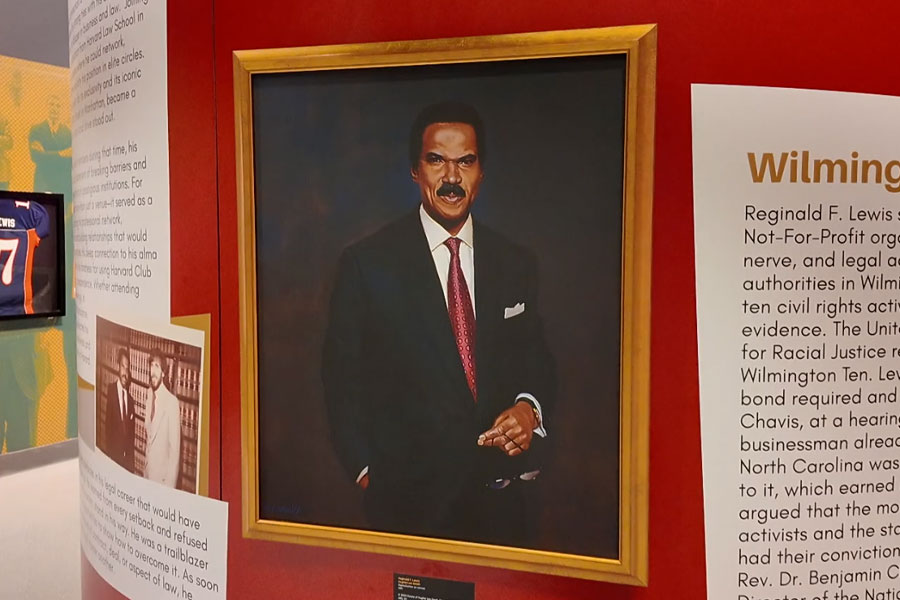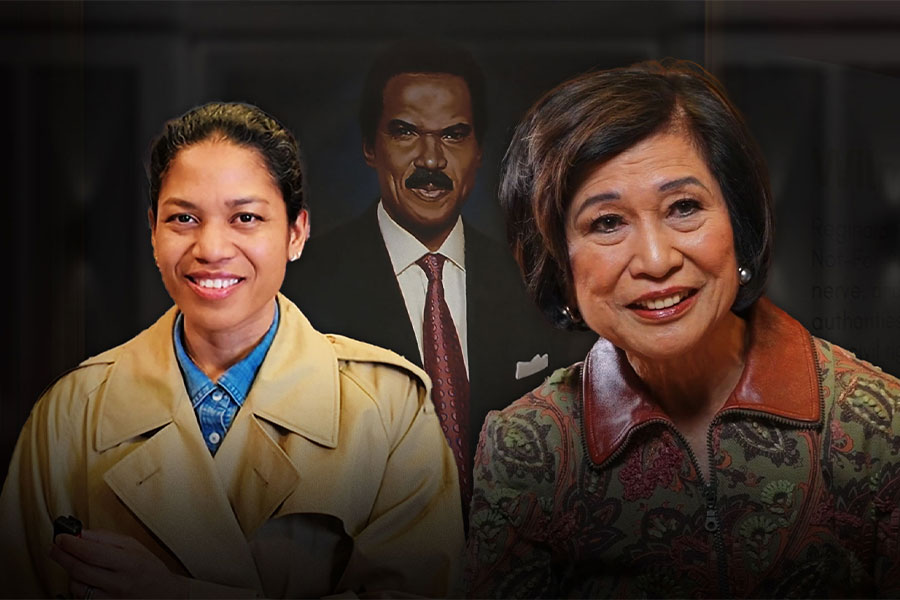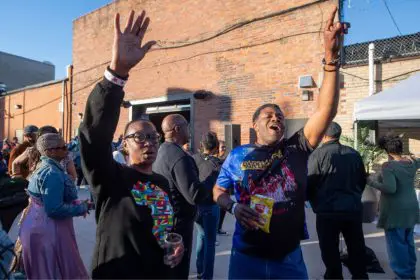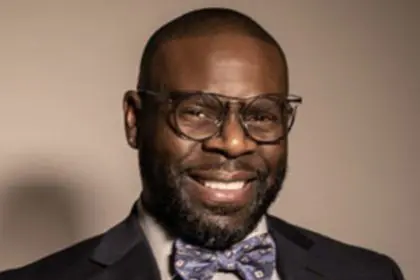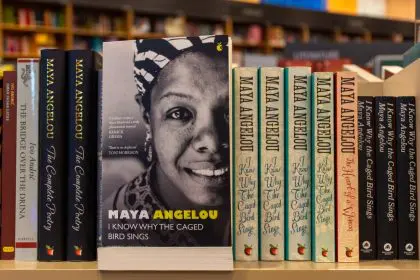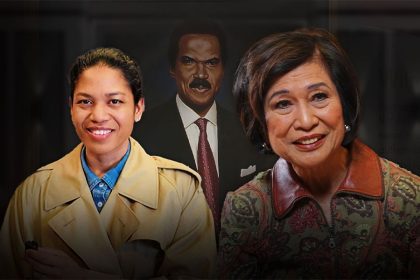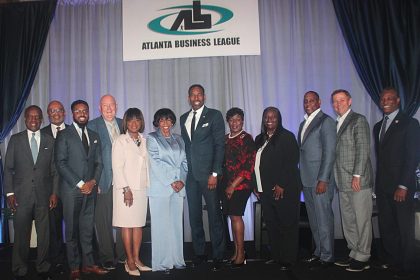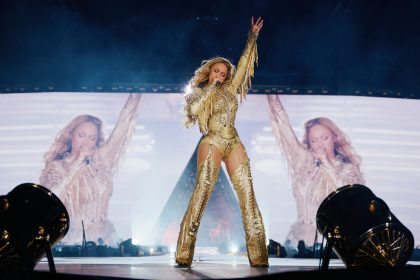Inside Baltimore’s Reginald F. Lewis Museum, the legacy of one of America’s most influential Black entrepreneurs comes alive through an unprecedented exhibition. The showcase, spanning the entire second floor, tells the story of a man who dared to challenge Wall Street’s status quo and succeeded spectacularly. The exhibition, opening its doors to the public, represents more than just a display of achievements, it embodies the spirit of possibility that Lewis championed throughout his life.
The making of a maverick
“He had goals, high goals, high dreams,” recalls Loida Nicholas Lewis, who met her future husband on a blind date when she was a newly admitted lawyer from the Philippines. Speaking with Rolling Out’s Munson Steed, she reveals three defining characteristics that shaped Lewis’s trajectory: ambitious goal-setting, unwavering determination, and unshakeable faith in his abilities. His aunt later revealed to Loida that one of his earliest aspirations was to become the richest Black man in America, a goal that reflected both his personal ambition and his desire to reshape societal expectations.
From an early age, Lewis questioned the racial disparities he observed. At just six years old, he posed the question that would later become the title of his autobiography: “Why should white guys have all the fun?” This early recognition of systemic inequality fueled his drive to succeed in spaces where few Black Americans had ventured before. His courage, as his wife notes, was deeply rooted in his firsthand experience of injustice and inequality within the Black community.
The path to excellence
Lewis’s educational journey took him from an HBCU to Harvard Law School, a path he strategically chose to maximize his potential. At Virginia State University, he excelled in economics while developing a broader worldview through his love for music, ranging from jazz to opera. When Harvard Law School announced it would accept the top five students from HBCUs, Lewis relentlessly pursued the opportunity, ultimately securing his place through sheer persistence.
The significance of his HBCU experience went beyond academics. It provided him with a foundation of cultural confidence and community support that would prove invaluable in his later career. His time at Harvard Law School, meanwhile, equipped him with the legal expertise and professional networks that would become crucial to his business success.
Building an empire
The transition from successful lawyer to business titan wasn’t immediate. Lewis faced initial setbacks, attempting to acquire three companies on his own before realizing the importance of building a strong team. His breakthrough came with the McCall Pattern Company acquisition, where he deliberately surrounded himself with skilled investment bankers, accountants, and lawyers who were invested in his success.
His approach to business was methodical and forward-thinking. At Harvard Law School, his honors thesis focused on mergers and acquisitions as a path to wealth creation, a strategy he would later implement with remarkable success. Even in his early law practice, he was laying the groundwork for his future business empire, developing expertise in corporate law while maintaining an unwavering focus on his larger goals.
A legacy beyond business
Before his death in 1993, Lewis outlined ten specific wishes for his foundation, including a five-million-dollar gift to the African American Museum of History and Culture. His daughter Christina, visibly moved during the exhibition’s opening, shares how the museum experience has brought her closer to her father’s memory. “This is the closest I’ve felt to him in a really long time,” she reflects.
The exhibition showcases not just his business acumen but also his passionate appreciation for art and culture. Starting with postcards of works by African American artists like Romare Bearden and Jacob Lawrence when that was all he could afford, Lewis built an impressive art collection that reflected his commitment to supporting Black culture and creativity.
The art of support
Loida Lewis’s role in her husband’s success offers valuable insights into partnership. She chose a nine-to-five government job as an immigration lawyer to maintain stability at home while supporting his ambitious career. “When your spouse, your partner comes home dejected, don’t kick him,” she advises. “Just lift him up. That’s what they need.”
She describes their home as an oasis, a place where he could find respite from the “dragons of racism and bigotry” he faced in the business world. This strategic approach to managing their personal and professional lives proved crucial to their shared success.
A continuing inspiration
The exhibition, which opened on February 8th, 2024, features personal artifacts including Lewis’s desk, car, clothing, and even his yearbook. It serves as both a historical record of 1980s Wall Street and an inspiration for future generations of entrepreneurs. As Christina Lewis notes, “All of the top Black entrepreneurs that you know, Black business people that you know, Black Wall Street founders and executives know about my dad.”
Lewis’s impact on American business history is particularly significant given the barriers he overcame. His success in completing the largest offshore leveraged buyout in history with the Beatrice deal proved that race need not be a limiting factor in business achievement. The deal, worth over a billion dollars, became a landmark moment in American business history.
For visitors, the exhibition offers more than a glimpse into business history. It presents a powerful narrative of perseverance, vision, and the transformative power of unwavering determination. The Reginald F. Lewis Museum has created not just an exhibition, but a pilgrimage site for aspiring entrepreneurs who dare to dream beyond society’s limitations.
In Loida Lewis’s final words to young dreamers, she emphasizes the importance of resilience: “Do not confuse the first failure as the final defeat,” she counsels, drawing from her late husband’s experience. “That’s how you learn.” This message, along with Lewis’s extraordinary legacy, continues to inspire new generations of entrepreneurs who dare to challenge the status quo and pursue their own versions of the American dream.
